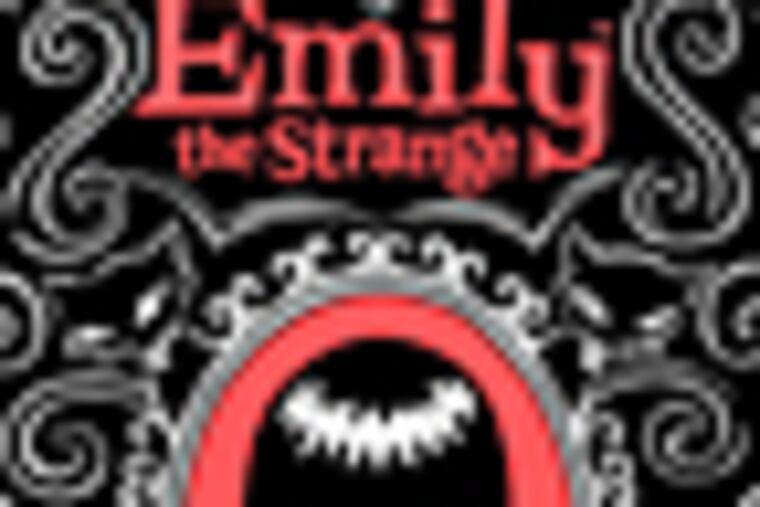Summer reading for young adults
It's not dreaded homework, but a list of new books that promise nothing but fun.

I'm not about to bad-mouth summer reading lists. Reading is good. Homework, however, is slightly less inspiring. So why not make up your own summer reading list - a private, fun one? Here are some new books, all out this spring and summer, to get you started.
The Eternal Smile: Three Stories, by Gene Luen Yang and illustrated by Derek Kirk Kim, offers three multilayered stories. They are the product of a collaboration between Yang, author of the award-winning graphic novel American Born Chinese, and illustrator Kim.
"Duncan's Kingdom" is an over-the-top fairy tale with a twist, and "Gran'pa Greenbax" is a witty send-up of corporate consumerism. ("Snappy Cola can bring about the destruction of all that is," one character says of a soda bottle with a familiarly curvy shape.) The wonderful "Urgent Response," drawn in muted purples, deals humanely with the idea of escapism in the digital age and is worth the price of admission on its own.
Waiting for You, by Susane Colasanti, is a teen love story with narrator Marisa, a 15-year-old whose interests include her cute classmate Derek and an Internet radio show called All Talk, No Action (good name!) that seems to be hosted, mysteriously, by someone from school. The characters' teen-speak seems a bit much at first, but turns out to be an important feature: Author Colasanti has a knack of sustaining the heart-pounding suspense of young love for the length of a novel while managing to make it read, charmingly, like a conversation.
In The Vast Fields of Ordinary, by Nick Burd, Dade is trapped in a Midwestern suburban housing development, a look-alike purgatory that author Burd captures with language that's poetic but not overwrought. Dade is gay and wonders if people can tell. He is also secretly, painfully involved with an unhappy jock from school.
His sophisticated, sometimes harsh observations are offset by his sweetness and - in the beginning - his lonely dislocation from his own life. It's nice to watch him come out, and into his own, over the summer after graduation.
You know Emily from Emily the Strange: The Lost Days, by Rob Reger and Jessica Gruner. She began as a buzz-sticker icon created for a skater clothing line back in 1991; by now, she's almost everywhere. She's the girl with black bangs, black cats, and a slingshot whose image embellishes everything from skateboards to lip balm.
That's right: This is a rare case of merchandise becoming a book and not the other way around. But Emily was always more icon than gimmick, and artist Rob Reger, along with writer Jessica Gruner, has harnessed her dark, snarky persona in this novel, made less novelish by all the doodles and numbered lists. Still, with characters named Raven and Umlaut, it's good fun.
Do you love books? Then Libyrinth, by Pearl North, is one for you. It's an intelligent fantasy set in a futuristic otherworld where Haly tends the Libyrinth, a massive library that contains all of Earth's accumulated wisdom. Haly soon becomes more than a mere library page when she has to battle the evil Eradicants, who are plotting to destroy all the world's books.
Author North positively swoons over literature, and at the back of the book is a guide to all the quotations she uses, from Shakespeare to Mary Daly.
The year is 1979 in When You Reach Me, by Rebecca Stead, and 12-year-old Miranda is the daughter of a single mother in New York City. Her favorite book is A Wrinkle in Time by Madeleine L'Engle. Miranda is such a natural, likable narrator - she's sweet, but she gets jealous in the most human of ways - that when this story reveals the brain-bending mystery at its center, it's almost like gravy. This book is lovely and almost impossibly clever: a real winner.
In Another Faust, brother-sister writing team Daniel and Dina Nayeri have crafted a modern-day Faust story featuring five teenagers who make a pact with the devil and receive uncanny powers, including the ability to read minds and enchant people with their physical beauty. Sounds good, right? But the challenge put to these characters is the same as the one the first Faust faced: Is there really anything worth the price of your soul?